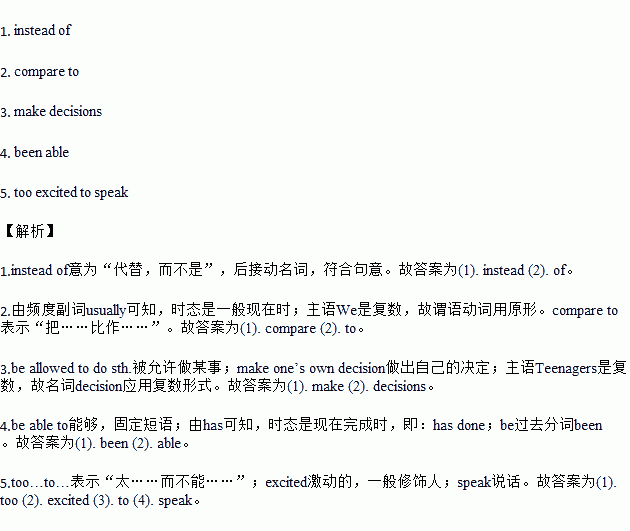题目内容
完成句子
1.奶奶喜欢缝制衣服而不是去服装店里买。
Grandmother likes making clothes ____ ____buying them in the shops.
2.我们通常把祖国比作母亲。
We usually ____our motherland ____mother.
3.应当允许青少年做出自己的决定。
Teenagers should be allowed to ____their own ____.
4.在科学家们的努力下,中国已经能够制造像C919这样的大飞机。
With scientists’ great efforts, China has __ __to make big planes like C919.
5.听到这个结果,朱莉激动得说不出话来。
Julie was ____ ____ ____ ____at the result.
练习册系列答案
相关题目

